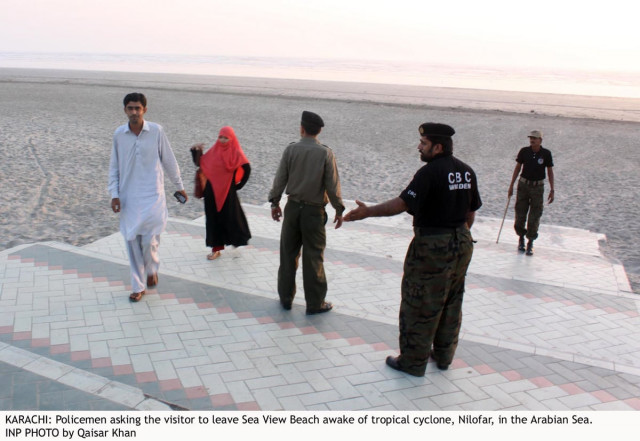Taking precautions against Nilofar
Given the vulnerability of Pakistan to natural disasters, we should be better prepared than we often appear to be


The National Disaster Management Authority has alerted all the relevant departments to take preemptive measures, which may include precautionary evacuation. There is going to be no stopping Nilofar and nature will take its course, but the reaction of the many and not always well-coordinated agencies and entities is going to possibly severely test our preparedness for such events. With cyclones in the Arabian Sea a regular event now, and the possibility of them making a landfall in Pakistan relatively high, it would be expected that there was a regularly updated cyclone response master plan. Developed nations conduct regular disaster management table-top exercises, bringing together all the key players and decision-makers to respond to a scripted scenario. Given the vulnerability of Pakistan to natural disasters — earthquakes and floods in the last decade and more floods to come as the world warms — we should be better prepared than we often appear to be.
Natural events with disastrous outcomes are going to increase in both frequency and severity, and the governments of both Sindh and Balochistan need to ensure that their levels of preparedness are such that a response can be ‘switched on’ with relative ease. That said, populations are not always willing or able to move, and human foolhardiness has a part to play as well, if one remembers the drownings off the Karachi beaches earlier in the year. Let us hope that cyclone Nilofar weakens quickly on making landfall.
Published in The Express Tribune, October 29th, 2014.
Like Opinion & Editorial on Facebook, follow @ETOpEd on Twitter to receive all updates on all our daily pieces.



















COMMENTS
Comments are moderated and generally will be posted if they are on-topic and not abusive.
For more information, please see our Comments FAQ